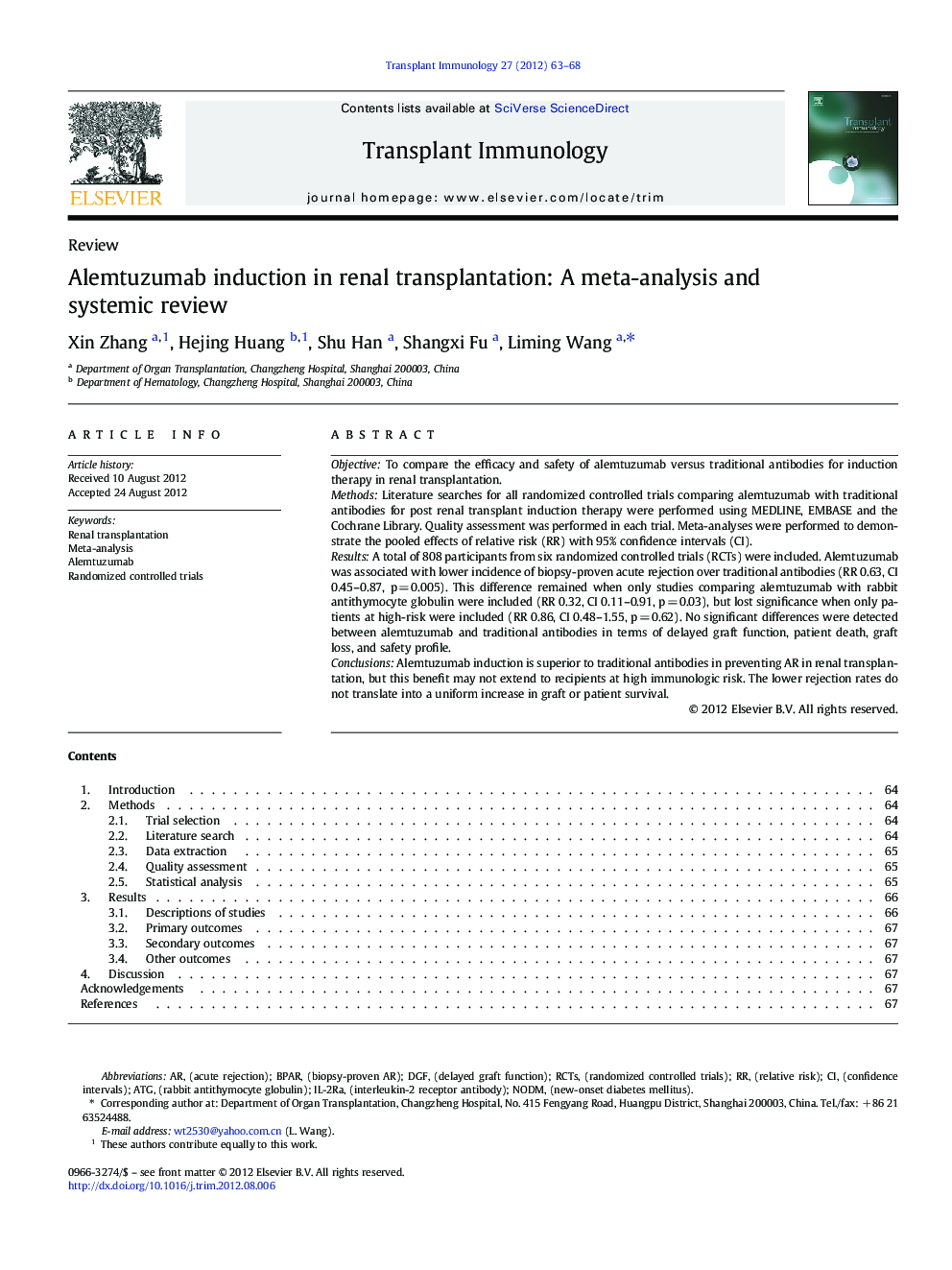| Article ID | Journal | Published Year | Pages | File Type |
|---|---|---|---|---|
| 3392128 | Transplant Immunology | 2012 | 6 Pages |
ObjectiveTo compare the efficacy and safety of alemtuzumab versus traditional antibodies for induction therapy in renal transplantation.MethodsLiterature searches for all randomized controlled trials comparing alemtuzumab with traditional antibodies for post renal transplant induction therapy were performed using MEDLINE, EMBASE and the Cochrane Library. Quality assessment was performed in each trial. Meta-analyses were performed to demonstrate the pooled effects of relative risk (RR) with 95% confidence intervals (CI).ResultsA total of 808 participants from six randomized controlled trials (RCTs) were included. Alemtuzumab was associated with lower incidence of biopsy-proven acute rejection over traditional antibodies (RR 0.63, CI 0.45–0.87, p = 0.005). This difference remained when only studies comparing alemtuzumab with rabbit antithymocyte globulin were included (RR 0.32, CI 0.11–0.91, p = 0.03), but lost significance when only patients at high-risk were included (RR 0.86, CI 0.48–1.55, p = 0.62). No significant differences were detected between alemtuzumab and traditional antibodies in terms of delayed graft function, patient death, graft loss, and safety profile.ConclusionsAlemtuzumab induction is superior to traditional antibodies in preventing AR in renal transplantation, but this benefit may not extend to recipients at high immunologic risk. The lower rejection rates do not translate into a uniform increase in graft or patient survival.
► Alemtuzumab is evaluated for post renal transplant induction therapy. ► Alemtuzumab induction is superior to traditional antibodies in preventing AR. ► The superiority of alemtuzumab may not extend to high-risk recipients. ► Alemtuzumab doesn’t show superiority on DGF, graft loss, or safety profile.
